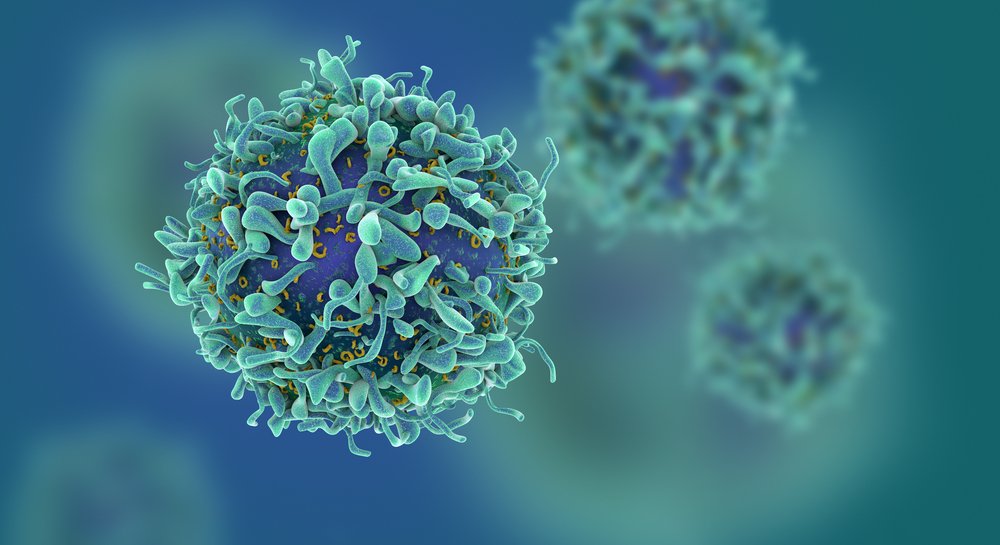Poseida’s P-BCMA-101 Eliminates Tumors in Mice with Multiple Myeloma, Studies Show

Poseida Therapeutics‘ P-BCMA-101 eradicates tumors in mouse models of multiple myeloma and creates memory T-cells that go on the attack when the disease returns, preclinical trial studies indicate.
The treatment also prolonged the mice’s survival better than other CAR T-cell treatments, the company said. CAR T-cell therapies use patients’ own immune cells to attack cancer.
Poseida presented the findings in a poster session at the American Association for Cancer Research 2017 Annual Meeting in Washington. The study was titled “PiggyBac-manufactured anti-BCMA Centyrin-based CAR-T therapeutic exhibits improved potency and durability.”
“CAR-T therapies have been extremely effective in treating acute lymphoblastic leukemia and have shown promise against multiple myeloma; however, relatively poor potency and durability continue to limit their efficacy,” Eric Ostertag, MD, PhD, chief executive officer of Poseida, said in a press release. “In our recent study being presented at AACR, we report significant improvements in potency and durability with our P-BCMA-101 CAR-T product, compared to results typically seen with competitors’ products in a preclinical multiple myeloma model.”
The improvements were “made possible by our advanced T-cell engineering capabilities that create multiple desirable attributes in CAR-expressing T cells,” Ostertag said.
CAR T-cells are genetically engineered T-cells designed to do a better job of detecting and eliminating cancer cells. The cells are removed from a patient and taken to a lab, where they are modified to express a chimeric antigen receptor, or CAR, that is specific to a cancer protein.
Usually, CAR T-cells are engineered to express an antibody that recognizes the cancer protein. Poseida has developed a new approach that it believes is more stable and less immunogenic — that is, doesn’t induce immune responses against the engineered cells.
The technique involves Centyrin molecules, which work like antibodies, binding to a specific protein.
P-BCMA-101’s T-cells express a BCMA-specific Centyrin. BCMA, or B-cell maturation antigen, is commonly found in myeloma cells and is a promising target for myeloma therapies.
Another innovation that Poseida used in creating P-BCMA-101 was the delivery system. Most CAR T-cell therapies use viral vectors to deliver a CAR gene to T-cells. Poseida scientists use a gene delivery system called piggyBac DNA Modification System, which lets them insert two additional genes in the delivery vehicle.
One gene can be used to shut down T-cell activity when side effects arise. The other gene allows scientists to specifically select T-cells with a BCMA-specific Centyrin in their DNA. Using this gene for selecting cells means that 95 percent of P-BCMA-101’s composition can consist of modified T-cells. The modified T-cell content of other CAR T-cell products ranges from 30 to 50 percent.
P-BCMA-101 reduces tumors in mice within seven days, while untreated mice die within four weeks, according to the preclinical trial studies.
In addition, the response to P-BCMA-101 was durable: it eliminated tumors when mice relapsed. Most mice treated with P-BCMA-101 survived 110 days, twice as long as the 50 days of mice treated with other viral-vector products.
Another important finding was that more than 70 percent of P-BCMA-101 cells displayed stem cell-like memory, allowing memory and effector T-cells to self-renew. Effector T-cells are those that actively respond to a stimulus.
The memory-cell content of products besides P-BCMA-101 is less than 20 percent, suggesting that P-BCMA-101 may reduce the need for subsequent injections in humans.
The researchers also reported that P-BCMA-101 did not show any signs of T-cell exhaustion. That’s important because exhausted T-cells have a reduced ability to eliminate tumor cells.






